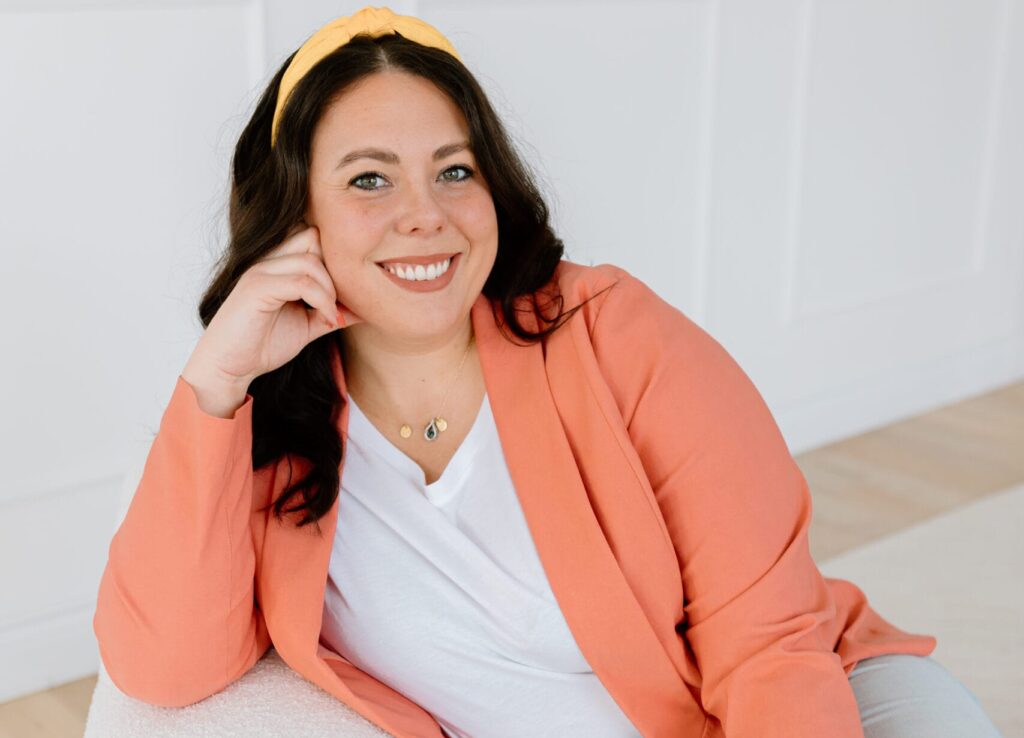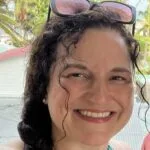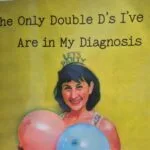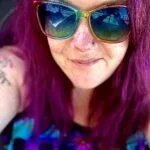
Tell us about your experience with ADHD
When were you diagnosed, or suspect that you had ADHD? How has it impacted your life?
I was diagnosed when I was 25. I was struggling with an eating disorder, traditional recovery strategies were proving extremely difficult, and my therapist noticed traits of ADHD. With my therapist's and doctor's support, I was able to connect with a psychiatrist who specialized in ADHD. Once I had my diagnosis, I realized how much my ADHD connected with my eating disorder, and that my mind works in different ways than “typical”. I have begun to notice the strong connection between ADHD and eating disorders in my clinical work, and can work from a unique understanding of both neurodivergence and eating disorders. My diagnosis allowed me to change my approach to recovery, my work, and how I navigate the world.
What has been the biggest challenge living with ADHD?
This could be in school, work, relationships, your mental health, etc.
I had always struggled in school with comprehension and test-taking. I always believed I was less intelligent and had to work much harder than my peers. I made it through my undergraduate degree and Master's, believing I was the problem and that I needed to simply work harder. My emotional regulation and mental health have always been challenging, and I have always judged myself for not having a better handle on them. Once I understood how my ADHD presents and how it has contributed to my struggles, I was more self-compassionate and learned what worked for me instead of trying to fit myself into a box.
What strengths or unique qualities do you associate with your ADHD?
Is there something about how your brain works that you appreciate or celebrate?
Aspects of my personality and qualities I used to view as negative, I am now able to view them through a lens of understanding and appreciation. Being a highly sensitive person (HSP) and someone who has unique ways to manage my everyday life has allowed me to remove barriers I thought needed to be a part of my life.
I have learned to harness my busy brain into my passions and fuel my drive. I allow myself to escape in my hyper-fixations and use them to ground myself. I have discovered more genuine ways that I connect with people and how to be myself in social situations rather than trying to mask.
I am able to share new systems with clients that are unique and creative to help clients view the world differently.
I find the world a lot less scary now that I’ve learned more about myself and my capabilities, not only my struggles.
How has your identity (age, race, gender, culture, etc.) shaped your experience with ADHD?
Feel free to reflect on how ADHD intersects with other aspects of who you are.
I am a 30-year-old woman who struggled her entire life, and even after being diagnosed with ADHD I still have people question its validity and my experience. When I was diagnosed, I was a new psychotherapist, and even I didn’t know how to navigate the system. I was as lucky to have a therapist and doctor who supported me seeking a diagnosis, who believed my struggle, and were able to look passed the “usual” presentation of ADHD, which is usually seen in hyperactive boys.
I made it through my Master's without being diagnosed, so my struggles were boiled down to not being book smart and simply needing to work harder. Being a woman who also struggled with anxiety and depression, no one looked further, and I was left thinking I couldn't trust myself and my experiences. Now I get to embrace my unique intelligence and advocate for other girls and women, let them know that I believe them, help everyone advocate for support, and work for earlier understanding and detection.
What do you wish more people understood about ADHD?
What myths or misconceptions would you love to bust?
I wish ADHD in girls and women were more widely understood, taken seriously, listened to, and more researched. I also wish society didn't continue the narrative of ADHD diagnoses being a “trend”. People are now seeking education and understanding. They are advocating for themselves and seeking support to function better in the world. People are finally asking for help, building self-compassion, and not having to resort to self-destructive behaviours. By gaining knowledge about ADHD, we are promoting emotional understanding and allowing more people to thrive in our society rather than restricting people.
What has helped you the most in managing or embracing your ADHD?
This could include tools, therapy, community, mindset shifts, medication, etc.
I made it my mission to educate and be an advocate for people struggling with ADHD and to understand their internal world. I have taken trainings, consulted medical professionals, as well as other colleagues on ways to help others who are struggling. I found the medication gave me the brain space to implement skills and practice self-compassion.
Through trial and practice, I have discovered structures that help me feel more confident in myself and in advocating for my needs.
Why do you want to share your story during ADHD Awareness Month?
What motivates you to speak up now?
I am an ADHD coach and therapist specializing in ADHD and neurodivergence. I have spoken at the CCPA Annual Conference on the topic- ADHD and Impacts on Eating Disorder Recovery. By sharing my story, I hope to connect with neurodivergent people, speak more genuinely and openly about my experience. Being a practitioner with lived experience allows me to get creative with my clients on structures that will help them with executive functioning, and also share my own struggles and successes.
I believe having practitioners talk about their own experiences encourages conversation and allows people to connect more authentically, knowing we are speaking from a place of connection and understanding. It also gives clients confidence that I will advocate for them throughout their journey, and they don't need to 'convince me' of their struggles.

This ADHD Awareness Month, CADDAC is highlighting... Read More

This ADHD Awareness Month, CADDAC is highlighting... Read More

This ADHD Awareness Month, CADDAC is highlighting... Read More

This ADHD Awareness Month, CADDAC is highlighting... Read More

This ADHD Awareness Month, CADDAC is highlighting... Read More